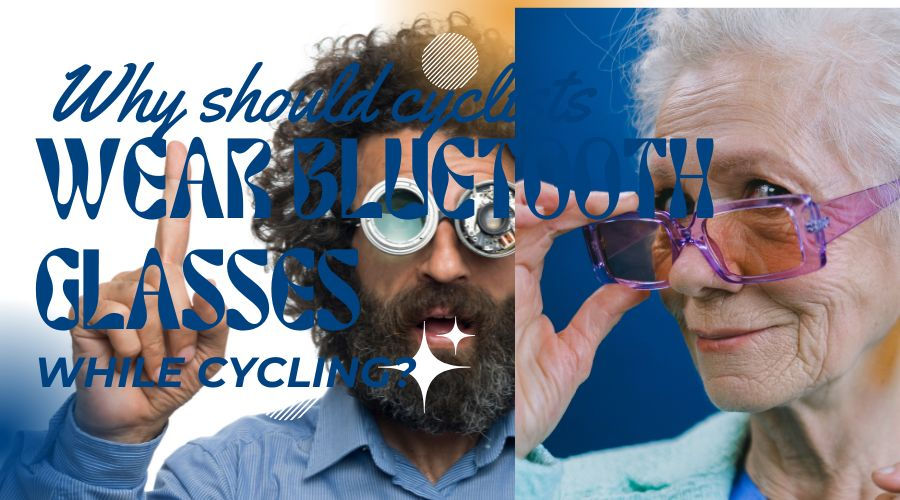Smart Glasses are Expected to Transform Health Care Sector in the Future
- yunsmartglasses
- Feb 21, 2023
- 4 min read

Many people have lost their lives because of the lack of facilities and approaches in the medical sector. It was a time when lack of resources led to the loss of lives and there was nothing to control it. Things are becoming better with new technologies and methods to overcome those basic health issues. Also, we are about to enter an era where treating diseases will not require a physical examination and the reason is the introduction of smart glasses. Here are some reasons and futuristic ways of treating patients with the help of these gadgets. This will lead the healthcare sector to buy smart glasses online in mega quantities to equip their practitioners. As a result, patients and doctors will get a timely response with higher output. These are five ways we can have an improvement in this medical field.
Access to Digital Reports via Smart Glasses
We have almost reached the 1st quarter of the 21st century and we are already using hi-tech devices to remove barriers in communications and treatment. Smart glasses are also expected to open gates of massive development in the healthcare industry. There was a time when doctors had to rely on physical documents for patients’ records. Now, things are changing because everything is digitalizing. What’s new here will be the use of smart glasses for instant access to digital reports. Is it possible in the future? Yes, it is inevitable in the upcoming years.
Since we are already close to experiencing the era of virtual and augmented realities, there is a high possibility of something unexpected in the healthcare industry. Health practitioners might be looking at patients’ historical data without any physical existence. All it will need is a pair of smart glasses and a connection with a computer to view every piece of information in the records.
Virtual Representation for Better Treatment of Diseases
You might have seen some demos of diagnosing wounds inside the skin without actually piercing through it. We might enter a world of smart glasses where we can have access to looking at wounds or simulators of living bodies to understand the nature of wounds or diseases. This will help practitioners learn better than learning through printed versions of data. For instance, learning through VR/AR is better than monotonous pictures or videos. Better understanding and clarity of concept will lead to better treatment of diseases.

This is going to be a groundbreaking feature in the scope of education, especially in the medical field. When you connect tech with medicine, you get a high possibility of success. Moreover, doctors will understand the disease better for quick treatment. As a result, time and resources will be used in a well-organized manner. Furthermore, patients will be relieved sooner than before. All of it can be done via smart glasses. Virtual tours can teach much better than books if we look at the impact on the human mind. Visual representation is mostly more effective when it is done with the help of VR technology. Virtual patient treatment will give different angles to view for higher comprehension.
Better Coordination with Other Members
Some cases are very complicated and they need expert advice. It is not possible to have an expert with you all the time. Especially, if you are a surgeon, you might be baffled by a rare disease. However, smart glasses can help you connect with the right person during the surgery to show your point of view. This will help to diagnose those rare cases by connecting with an expert who is not even physically present in the surgery room. All a surgeon will have to do is show the case while doing surgery, and whoever is connected at that time, will be able to see the situation clearly.
As a result, instead of one expert, multiple experts will be able to find solutions in a live surgery without putting the life of a patient at risk. At the moment, smart glasses have a built-in camera, microphone, and speakers with Bluetooth technology. This might develop into much more advanced in the upcoming years.
Capture and Record Medical Issues
As we have shared above smart glasses have cameras, speakers, and microphones, and doctors can benefit from them in many ways. For instance, they can capture the skin problem of a patient and discuss it with a higher expert. This will save time and resources to treat that disease. Also, doctors can record and practice any wound for a virtual tour of medical students. This will help those students learn about surgeries better who can’t attend classes because of some reasons. Doctors in remote areas do not have enough medical facilities to learn. However, smart glasses can help them learn and develop themselves with state-of-the-art methods.

This will be possible if they connect with practitioners living in developed countries and can only learn via smart glasses. Doctors from overseas locations can connect with inexperienced doctors to assist them in operations they are not well aware of.
Improvement in Remote Treatment/ Telehealth
Recently, telehealth services have taken a boom since the pandemic took place in 2019. Doctors had to embrace digital devices to connect with patients for remote treatment. Many basic diseases were cured with the help of this service and it also relieved numerous patients. Patients can save their traveling costs and energy by getting expert advice at their fingertips via smartphone. Now, it is about to become better with the help of smart glasses.

Doctors will be able to diagnose their diseases with better access. In addition, doctors will be having in-depth information about the patient’s illness or condition with the help of smart glasses. People who do not have conveyance can connect to doctors for real-time advice. Relatives can use these smart glasses to show the actual condition of a patient for better information.
These were some expected and already introduced features of smart glasses in the healthcare industry of some developed countries. With rapid development in IoT, the medical sector will get a fine boost in research and development.




Comments